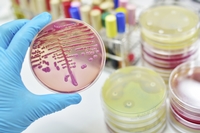In the same section
- Accueil
- EN
- Research
- Research projects
- Fédération Wallonie-Bruxelles
- "Actions de recherche concertées" (ARC)
-
Share this page
Research project "Does sex restrain genome evolution?" (ARC program)
Does sex restrain genome evolution? An experimental investigation using yeast as a model organism

To test this hypothesis, Jean-François Flot and his team will observe the evolution of the genome of beer yeasts (Saccharomyces cerevisiae, a model organism with a well-characterised genome) in parallel lineages reproducting either from time to time sexually or exclusively in a clonal fashion. In two years, the researcher hopes to see each lineage divide more than 8000 times, which corresponds to over 200,000 years of evolution when scaled to the human life. Changes in genome structure through time will be scrutinized using a cutting-edge technique called "3C-seq". The results from this study will allow us to better understand the role of sex in evolution.
Spokesperson
FLOT Jean-François
Evolutionary Biology and Ecology
Faculty of Sciences
